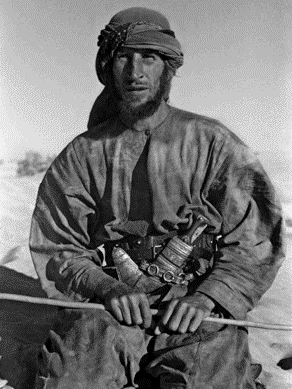STORIES
The Empty Quarter, Rub' Al Khali
Geography

The Empty Quarter is huge, covering over 650,000 sq km, bigger than France and one of the harshest and sparsely populated places on earth with only 1.2 inches rainfall pa. The desert is the largest continuous sand desert on Earth.
History
The Rub’ al Khali has been inhabited for thousands of years, and its people have developed a unique culture that has been shaped by the harsh environment. The Bedouin have been living in the Rub’ al Khali for centuries and haev adapted to the harsh environment and developed a deep understanding of the desert’s secrets.
The 1930s to 1950s saw western exploration of the area with Harry St John Philby, Bertram Thomas and Sir Wilfred Thesiger making crossings of the Rub' al Khali, supported by Bedouin guides and camels. Thesiger's 1959 book, "Arabian Sands" gave a famous account of his travels and mapping of the Empty Quarter in Saudi Arabia and Oman.
In 1931 Bertram Thomas completed the first documented crossing of the Rub' al Khali by a European, starting at Salalah, Dhofar on 10 December 1930, enduring extreme hardship and the constant threat of ambush by warring tribes, to arrive in Doha, Qatar 59 days later.
Our route will cover some of the same tracks Philby covered in 1932, when he discovered and documented the Wabar craters, on a search for the lost city of Ubar. We will also cross in the footsteps of Thesiger, as we head north east through the Rub' al Khali, and visit As Sulayyil, where Thesiger and his party were detained in January 1947.
The Rub' al Khali today is still largely unexplored, given its vast geography. The discovery of oil in the late 1940s led to a ongoing change in lifestyle for the Bedouin, with a reduced population and movement to the fringes of the desert.
Oil
The South Ghawar field , discovered in 1948, is the largest oil field in the world and extends southward into the northernmost parts of the Empty Quarter. Aramco have continued to explore northern and eastern areas of the Rub' al Khali where there are significant oil fields. The Kingdom currently holds circa 19 percent of the global oil reserves and 12 percent of global production.
Our expedition finishes at Haradh, the industrial city at south of this oil and gas field, providing a contrast to the Bedouin lifestyle from our starting point.




